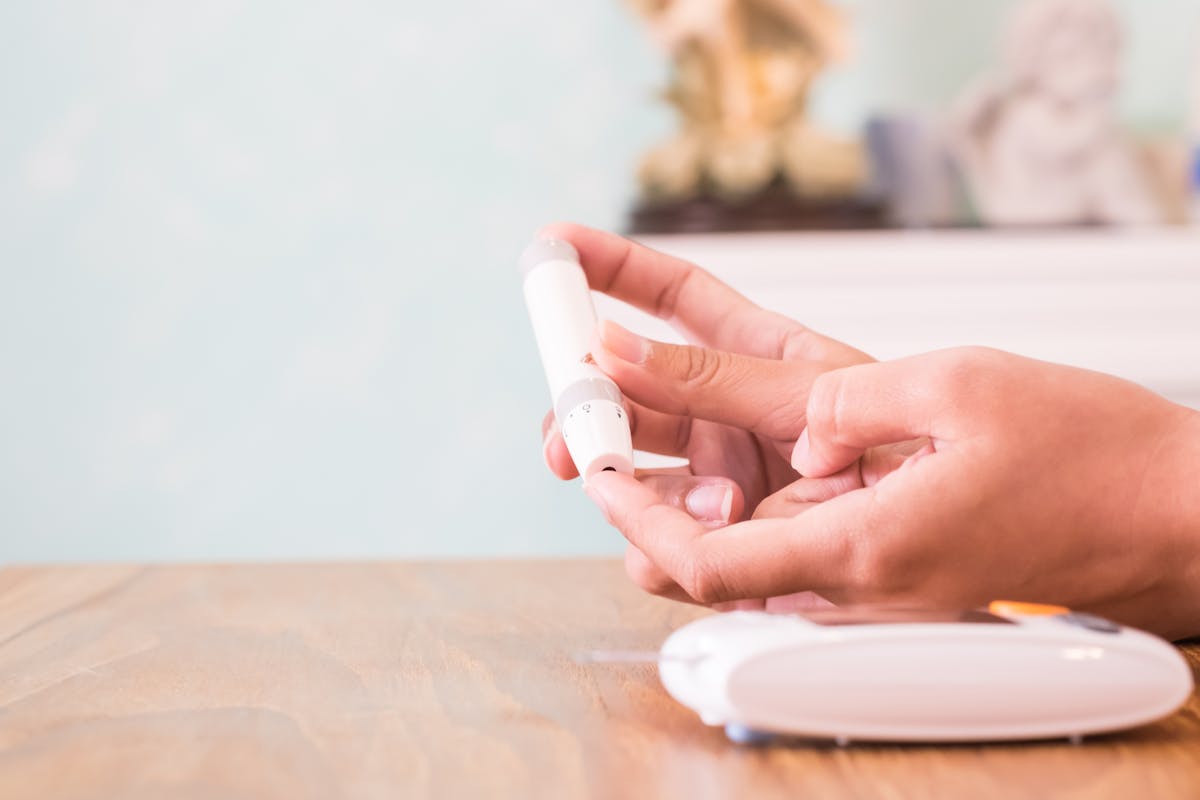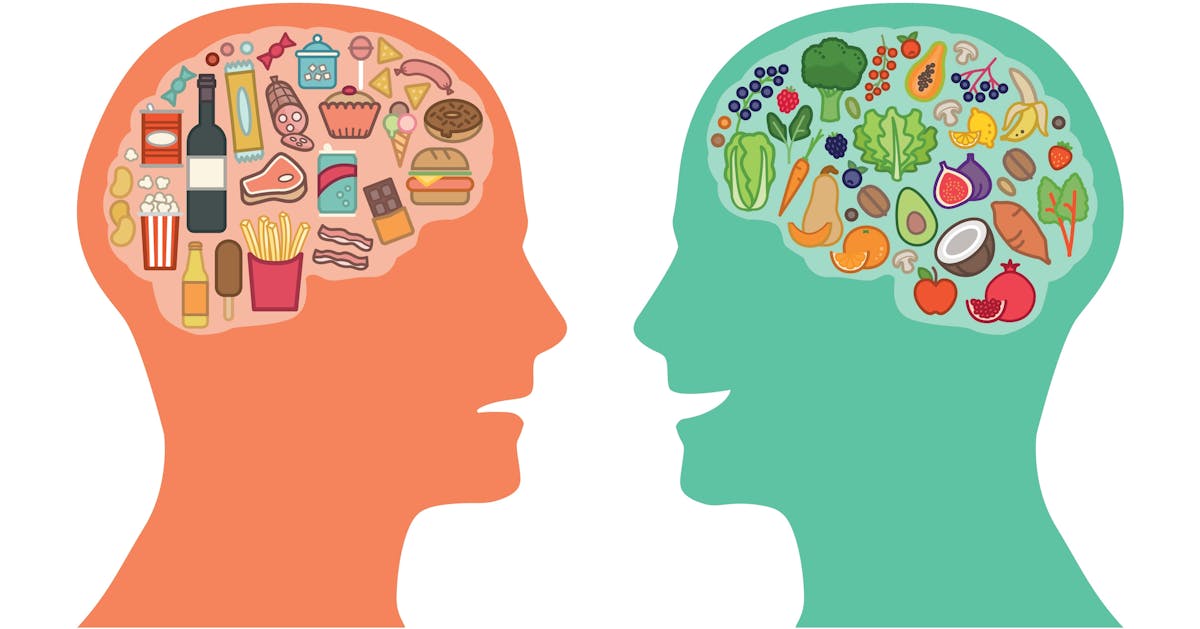FAQ about low-carbohydrate diets and mental health
Do you have questions about how adopting a low-carb lifestyle might affect your mood and psychological wellbeing? Well, we have answers! Scroll down and check out some of the most common questions people with mental health issues ponder before beginning a low-carb diet.
Need more information? Check out our related low carb and mental health guides: The food-mood connection, How sugar may damage the brain, or Getting started and managing medications.
When will I start feeling better?
Unfortunately, your mood may actually temporarily get worse before it gets better. Irritability, depression, fatigue, mood swings, sleep changes, and cravings for sweets and starches are among the possible carbohydrate “withdrawal” effects, particularly if your previous diet was high in refined carbohydrates like sugar and flour.
The first few days of a low-carbohydrate diet are usually the hardest, but some people need more time to transition. During the first week or two, it’s best if you have good people around who know you well and who can support you through the rough patches. If you feel unsafe, out of control, or just plain miserable for too long, don’t be a hero. You can always simply return to your previous diet, regroup, and make a new plan. While low-carbohydrate diets aren’t right for everyone, some reflection, troubleshooting, and adjustment can go a long way toward helping future attempts feel more comfortable if you decide to try again.
How many carbs can I have per day?
Carbohydrate tolerance varies from person to person, but a reasonable starting point that brings noticeable benefits for most people is a maximum of 20 grams of whole-food sources of net carbohydrate per day, spread out over the course of the day. There is no minimum daily requirement for carbohydrates, so you cannot go too low.
Do I have to be in ketosis?
Unfortunately, we have very little research available to help answer this question. This study of people with pre-Alzheimer’s disease suggests that higher ketone levels brought better results, and this is certainly the case for some of my own patients with various psychiatric disorders who report feeling best if their blood ketone levels are somewhere between 1.0 mM and 2.5 mM.

Which is the best ketone meter on the market?
GuideWith a blood-ketone meter, you can test for blood levels of beta hydroxybutyrate, a ketone that your body produces when in ketosis. Making it into ketosis can help supercharge weight loss and deliver other benefits like appetite control, mental clarity, and improved health.
Should I take ketone supplements?
There is very little research available to help answer this question. Alzheimer’s disease research has produced a couple of studies finding that ketone supplements or MCT (medium chain triglyceride) oil may be beneficial for brain function in the short-term.
What about caffeine and alcohol?
Low-carbohydrate living requires giving up many of our favorite addictive foods and beverages, and it can be tempting to substitute new vices for the old ones. Low-carbohydrate alcoholic beverages and sugar-free caffeinated beverages are popular and trendy in some low-carbohydrate communities. Alcohol and caffeine are mind-altering drugs with the potential for significant psychiatric side effects which vary depending on the quantity, the pattern of use, and the individual. Pay careful attention to how these substances affect you and know your limits.
Both alcohol and caffeine, even in modest amounts, raise stress hormone levels and can cause anxiety and insomnia.
If you are struggling with mental health issues of any kind, you owe it to yourself to see how you feel without these substances in your life, so you can make an informed decision about their risks and benefits. If alcohol is a significant part of your life, you may need professional support to safely and successfully stop drinking.
What if low-carb doesn’t help enough, or makes me feel worse?
If a whole-foods low-carbohydrate or ketogenic diet doesn’t bring you the benefits you were hoping for, take heart! There are additional adjustments you can make that your brain may appreciate. Eating a low-carbohydrate diet supports healthy brain metabolism, but other aspects of nutrition matter, too.
Just because a diet is low in carbohydrate doesn’t guarantee it contains everything your brain needs for optimal function. Nutrient deficiencies such as iron, zinc, and B12 deficiency can all contribute to poor mental health, so it’s important to discuss nutrient deficiency testing with your health care provider, include some animal foods in your diet if you can, and learn which foods increase risk for deficiencies.
If you feel worse on your new low-carbohydrate diet, one possibility is that you have an unrecognized sensitivity to a food that you are eating now that you didn’t eat much of before. Common allergy and sensitivity culprits include some beloved low-carbohydrate staples like dairy products, nuts, and eggs. In some people, food intolerances can contribute to anxiety, brain fog, fatigue, insomnia, and other frustrating symptoms.
There are studies suggesting that many children with ADHD can improve significantly on low-allergen diets, and gluten reactivity has been convincingly linked to some cases of autism and psychosis.
Unlike true allergies, there are no reliable tests for food sensitivities, so experimental elimination is the only way to know if a particular food is bothering you.
Do I have to be perfect about my diet?
Expecting perfection can be a recipe for failure.
Who are you underneath all that sugar?
If you have any problems with concentration, motivation, mood, energy, productivity, or outlook, you owe it to yourself to discover what a healthier diet can do for you.
Most of us have been feeding our brains improperly our entire lives and have no idea how much better we could feel if we ate differently.
You may think of yourself as anxious or depressed by nature. You may have been told that you’ve been a low-energy or scattered person since you were a child. You may even have been diagnosed with a serious mental illness, been hospitalized, or been told you will need psychiatric medication for the rest of your life. Yet, the only way to know how you really feel and what you’re truly capable of is to remove the foods that are working against your good mental health and see how you feel.
We hope these frequently asked questions — and the encouraging answers — give you hope. Although there are still many uncertainties, there is great potential for food to heal both the body and the mind. If you struggle with anxiety, depression, or other psychiatric conditions, we encourage you to give low-carb eating a try. Please see our guide, Low carb and mental health: Getting started and managing medications for the safest way to begin your journey!



